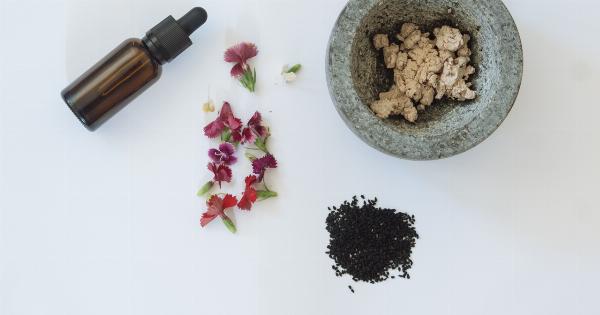Neonatal acne is a common condition that affects newborns within their first few weeks of life. Although it can be distressing for parents, it is generally harmless and does not cause any long-term concerns.
In this comprehensive guide, we will discuss what neonatal acne is, its causes, symptoms, treatments, and tips to manage it effectively.
What is Neonatal Acne?
Neonatal acne, also known as baby acne, is a skin condition that affects infants in their early weeks of life. It is characterized by the appearance of small red or white bumps on the baby’s face, particularly on the cheeks, forehead, and chin.
Neonatal acne is prevalent and affects up to 20% of newborns.
Causes of Neonatal Acne
The exact causes of neonatal acne are unknown. However, several factors could contribute to its development:.
- Hormonal Changes: Fluctuations in the baby’s hormones, particularly the surge in maternal hormones during pregnancy, can stimulate the oil glands in their skin. This increased oil production can lead to the formation of acne.
- Maternal Hormones: Some studies suggest that the transfer of maternal hormones to the baby during pregnancy or breastfeeding may also contribute to neonatal acne.
- Bacterial Overgrowth: Certain bacteria, such as Propionibacterium acnes, may accumulate on the baby’s skin and clog their pores, triggering acne-like bumps.
- Irritating Substances: Exposure to certain irritants, such as rough fabrics, detergents, or lotions, may also contribute to the development of neonatal acne.
Symptoms of Neonatal Acne
Neonatal acne appears as small pimples or papules on the baby’s face. The most commonly affected areas include the cheeks, forehead, and chin. The pimples may be red or white, and some may develop a yellowish crust.
Unlike adult acne, neonatal acne does not typically cause blackheads or severe inflammation. The condition usually resolves on its own within a few weeks or months.
Treatments for Neonatal Acne
Neonatal acne usually does not require any specific treatment and tends to clear up without intervention. However, if the condition persists or causes significant discomfort, the following treatment options may be recommended:.
- Gentle Cleansing: Cleanse your baby’s face using a mild, fragrance-free baby cleanser or water twice a day. Avoid scrubbing their skin or using harsh products as it may worsen the condition.
- Avoid Oil-based Products: Steer clear of applying oily or greasy lotions on your baby’s face as they can clog the pores and exacerbate the acne.
- Keep the Face Dry: Pat your baby’s face dry gently after cleansing to prevent excessive moisture build-up, which can contribute to bacterial growth.
- Avoid Squeezing or Picking: As tempting as it may be, avoid squeezing or picking at the acne bumps. This can lead to infection, scarring, or further skin irritation.
Tips for Managing Neonatal Acne
While neonatal acne generally resolves on its own, you can follow these tips to manage the condition and minimize discomfort:.
- Keep the Baby’s Face Clean: Gently clean the baby’s face with a soft cloth and mild cleanser to remove any impurities or excess oil.
- Choose Gentle Fabrics: Opt for soft, breathable fabrics for your baby’s bedding and clothing to prevent irritation.
- Avoid Harsh Detergents: Wash your baby’s clothes with a fragrance-free, hypoallergenic detergent to minimize potential skin irritants.
- Limit Sun Exposure: Protect your baby’s delicate skin from direct sunlight, as UV rays can worsen acne and potentially cause sunburn.
- Consult a Pediatrician: If you notice severe or persistent acne, or if your baby appears to be uncomfortable, consult a pediatrician for further evaluation and guidance.
When to Seek Medical Advice
In most cases, neonatal acne does not require medical intervention. However, you should consult a healthcare professional if:.
- The acne persists beyond six months of age.
- The condition worsens or spreads to other areas of the body.
- Your baby appears to be in discomfort or experiences excessive itching.
- There are signs of infection, such as pus-filled bumps, redness, swelling, or warmth in the affected area.
Conclusion
Neonatal acne is a common occurrence in newborns and is generally harmless. By following proper hygiene practices, avoiding irritants, and allowing time for the condition to resolve on its own, you can effectively manage neonatal acne.
Remember to consult a healthcare professional if you have any concerns or if the acne shows signs of infection or persists beyond the first few months of life.




























